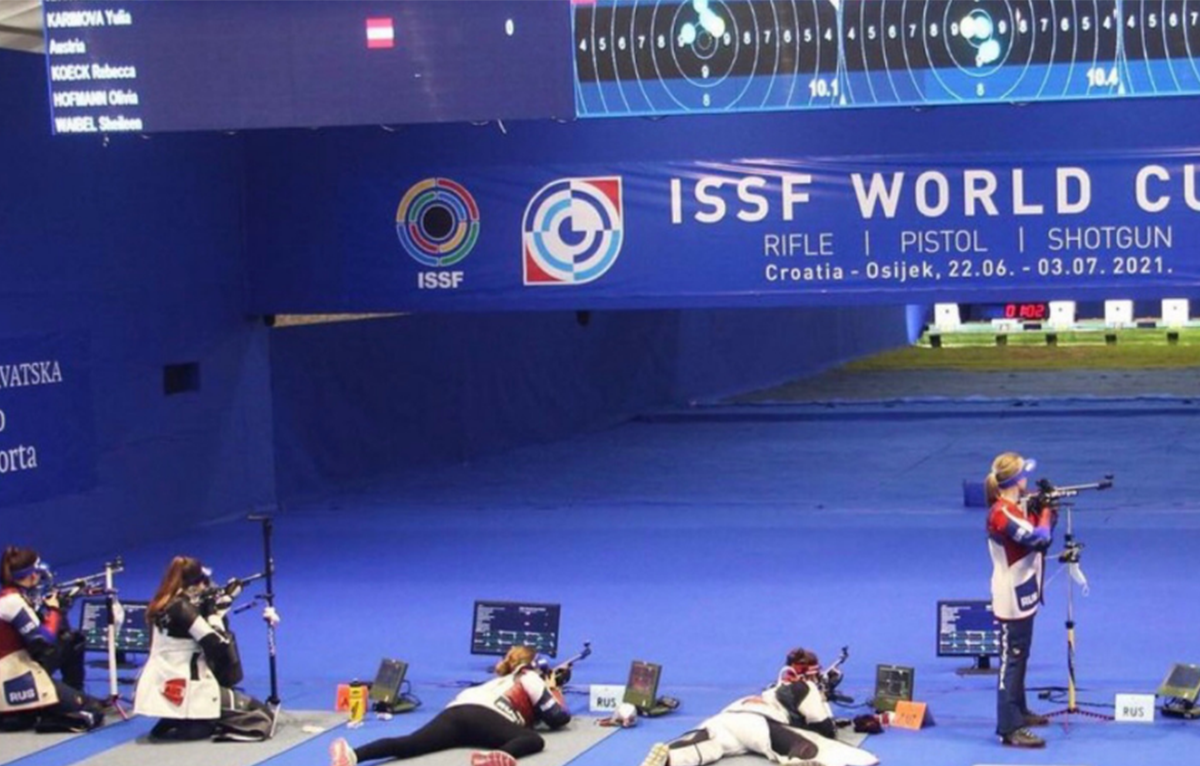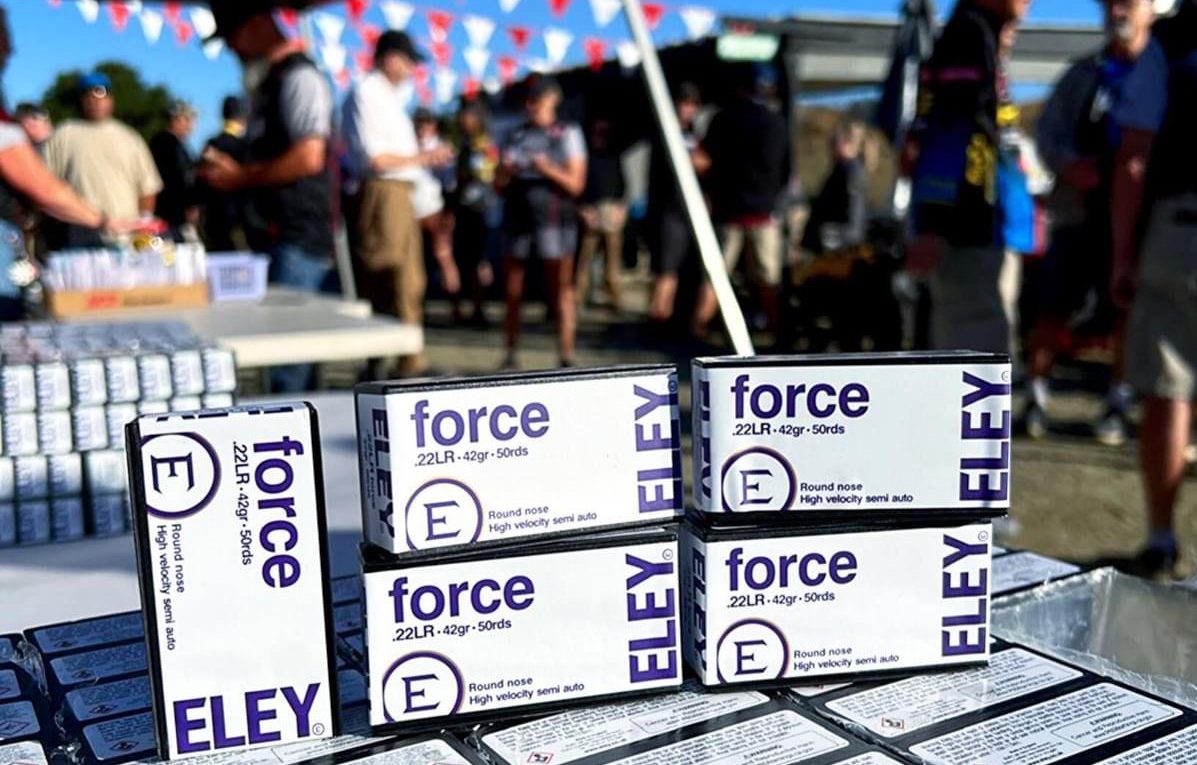The word ‘firearm’ offers a diversity of connotations from around the globe and differs from place to place.
However, hard work, dedication and an art like form shooting sports truly offers can be overlooked.
Athletes from all corners of the world take years to perfect their shooting craft, with incredible amounts of time and effort put in each day.
It is vital to understand shooting athletes are just like everyone else in modern society, with many having other careers alongside attending multiple events as well as the pinnacle of sport that is the Olympics. Hard work is put in on and off the range and the taboo behind shooting, firearms as well as negative headlines or comments in the media does not show a true portrayal or representation of sports shooters.
Olympic bound, Australian Pistol shooter Elena Galiabovitch stated that often when she mentions that she does shooting for a sport, she would receive comments like:
‘Oh, I don’t want to get on your bad side’
‘I wouldn’t want to annoy you then’
‘I’ll have to make sure I’m on my best behaviour around you’
Elena, who alongside preparing for the Tokyo Olympics, is a doctor training in the specialty of urology said that “it’s not everyone, but it is a lot of people. It is quite refreshing when someone says wow that’s so interesting and ask you some more questions about it”.
She mentioned how shooting is not a well-known sport in Australia and occasionally such comments can enter into her professional meetings, which is quite bothersome with people saying inferring that her positive review is due to a perceived threat because of her shooting:
‘Yes, this is why we look so happy, she doesn’t like negative reviews’
“Even people who have known you for a while or have worked with you, will still make these comments to me as well as to my colleagues/friends. When my friend mentioned to a nursing staff member, she was having dinner with me after work, the response was ‘oh you better not be late she may get angry’.
There is certainly a lack of knowledge or education about the sport and therefore a desire to joke due to some discomfort can occur.
I used to laugh it off, you find yourself explaining and justifying the safety of the sport and the positive attributes of it, so one positive is that at least it does start a conversation (It can be quite tiresome and sometimes I find I don’t divulge my sporting activities).
These sort of comments and conversations do take away some of the appreciation of the skills required to perform at a high level in shooting and the other positive attributes of shooting athletes and sportspeople. Not everyone responds that way of course, but there are also a lot of people genuinely interested and intrigued”.
World number one, Hungarian Rifle shooter, István Péni competes in individual events as well as team based mixed events. He said “of course, we shooters are often met with negative stigmas about shooting, such as:
‘This is not a sport’
‘Shooting is easy, you just need to pull a trigger’
If I am honest, nowadays I don’t mind if I hear one, because it can only cause negative energy that I don’t need. I also consider people who are telling me such things as being uninformed. Anyhow, I think the best thing to do if someone has a bad opinion about our sport is to kindly invite them to training and let them try it! I have often met people that had a significant change about our sport after they have tried it.
At the Olympic centre, we sometimes invite athletes from other sports to the range, that are usually arriving as ‘self-nominated snipers’ and then leaving extremally modestly”.
István concluded by saying that “shooting is a sport that requires talent, hard work and a lot of braveness, just as any other sport. The amount of self-control and calmness that shooting requires is unbelievable and highlights our sports from others”.
Great Britain (TA) and England Rifle shooter, Ruth Mwandumba first discovered target shooting as a teenager whilst in Army cadets. She was 18 at the time and at university when she joined a shooting club.
Four years later, she was an English champion and the first black woman to gain this incredible achievement.
It is not just in shooting that Ruth is currently excelling. She is currently studying for her PhD in epidemiology at the University of Manchester, specifically looking at infectious wounds in Malawi, where her family are from and also following in the footsteps of her father who is a specialist in infectious diseases. Previously, she mentioned how she used to travel in her British Shooting kit just in case she was stopped and searched by police and they found her rifles in the car.
“I just thought if I ever get stopped, then I would want them to see what I’m wearing before they make any kind of judgements,” she says.
This was whilst she was studying as an undergraduate whilst at university in London. It never happened to her personally, but it had happened to close friends. Ruth is now living back in her hometown of Crosby in Merseyside and does not feel the need to do this anymore. However, as one of very few black shooters in the shooting sports industry, she wants to make a difference.
“The first time I realised that I wanted to make a change is when I first started shooting competitively. I realised I was the only black shooter on the scene at the time and not just only in the UK, but when we were travelling for competitions within Europe too. It was very noticeable. It didn’t really affect me too much, but it was something that was always in the back of my mind. Ever since then, I’ve made it an aim of mine to make a change by the time I do eventually leave the sport, whenever that is.”
She went onto say “the worst thing that I have faced is micro aggressive comments from people when I tell them that shooting is my sport. It was particularly bad when I was studying my undergraduate degree as I would get comments all the time from people who were trying to make negative ‘banterous jokes’ about me being a black shooter who shoots rifles. Luckily, it’s not something that I hear as much anymore. However, I do still receive the odd comment from people along those similar lines and I’ve even received social media messages about it online in the past”.
It is imperative to understand that shooters who compete at all levels are human beings.
Even though all sports have their differences, they all have the same long-term goal at the end of it, which is to compete at the highest level as well as offer enjoyment, social engagements and interaction. Shooting is a sport that requires physical as well as psychological conditioning, patience is key.
Technical precision is a craft that takes years to perfect. Unlike many other sports, shooting offers a unique aspect that is open to people of all ages. With shooting sports involving equipment such as firearms and ammunition, there can be a stigma that demotes the positive elements the sport can offer, not just as a professional athlete, but more importantly as a hobby and local level shooter.





